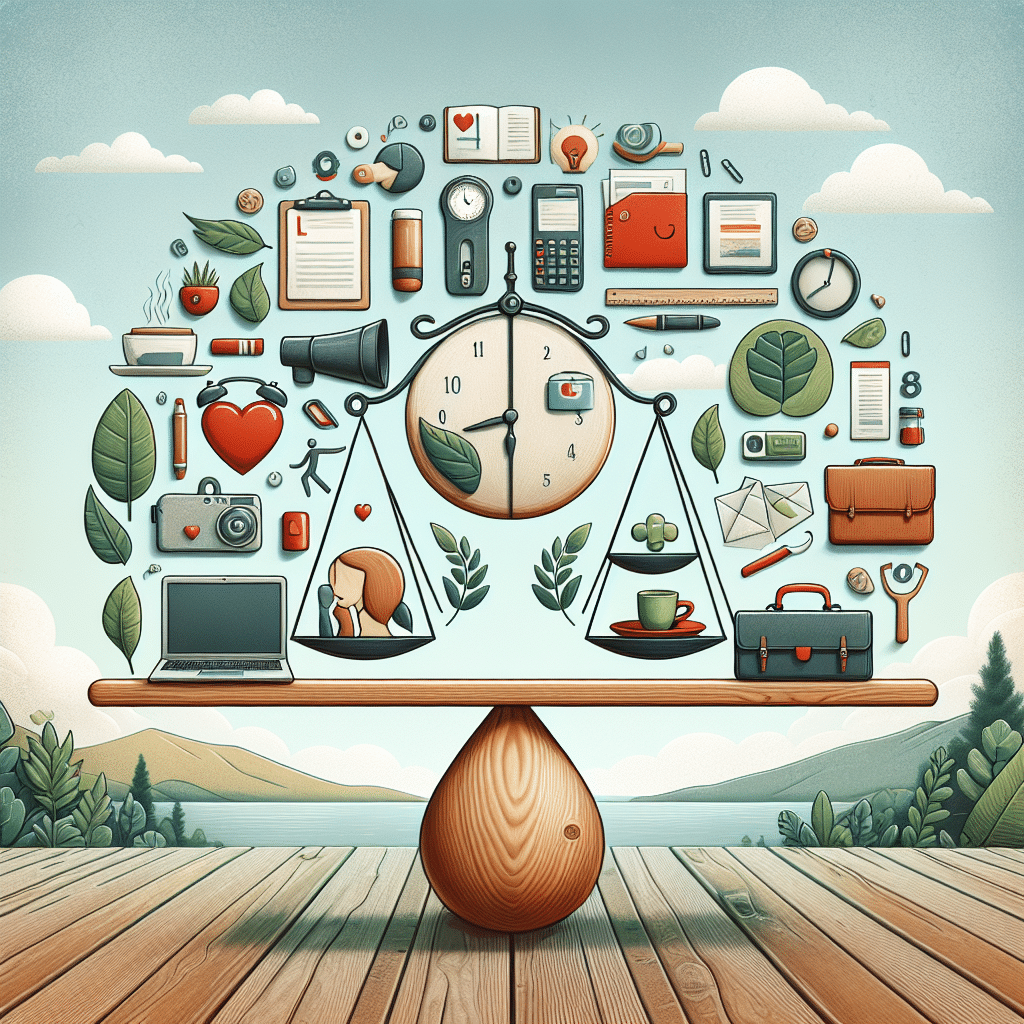1. Set Clear Boundaries
Establishing clear work-life boundaries is essential for maintaining a balance between your professional and personal life. Clearly define work hours and stick to them, making it easier to separate your work from your home life. This means avoiding checking emails or completing tasks outside your designated work hours.
2. Prioritize Your Tasks
Use the Eisenhower Box or ABC prioritization method to distinguish between urgent vs. important tasks. This helps you focus on what truly matters, minimizes stress levels, and prevents work from bleeding into personal time.
3. Embrace Technology Wisely
Leverage productivity tools and apps like Trello, Todoist, or Asana. These can help streamline your work tasks, allowing for better time management. However, avoid letting technology consume your personal time. Establish rules for technology usage during off-hours.
4. Learn to Say No
Saying yes to every request can lead to burnout, so practice the art of saying no. Avoid overcommitting yourself by assessing whether additional responsibilities are worth the time and energy before accepting them.
5. Designate Personal Time
Set aside specific hours in your week dedicated solely to personal activities. Whether it’s family time, hobbies, or self-care, mark this time in your calendar as non-negotiable. Treat it with the same importance as a work meeting.
6. Utilize Breaks Effectively
Incorporate short breaks into your workday to rejuvenate your mind. A quick walk, stretching, or meditation can help improve focus and productivity. Remember that stepping away from your workstation can dramatically enhance your well-being.
7. Communicate Openly
Maintain open lines of communication with your colleagues, employer, and family. If workload pressure affects your personal time, discussing it can lead to better understanding and support from your team, enabling more manageable work-life integration.
8. Focus on Flexibility
If your job allows it, consider flexible working arrangements. Whether it’s remote work or adjusted hours, having the ability to re-schedule your workday can greatly enhance your personal life.
9. Maximize Time Management
Use the Pomodoro Technique—work intensely for 25 minutes followed by a 5-minute break. This method can enhance focus and productivity, allowing you to finish tasks quicker, leaving more time for personal activities.
10. Cultivate Mindfulness
Incorporate mindfulness practices in your daily routine. Meditation, journaling, or simple breathing exercises can help reduce stress and improve mental clarity, making you more productive at work and present at home.
11. Limit Multitasking
Focusing on one task at a time can improve quality and efficiency. Instead of multitasking, which can lead to mistakes and inefficiencies, prioritize completing items individually for a more effective workflow.
12. Schedule Family Time
Make family commitments as important as work meetings. Family dinners, game nights, or outings should be scheduled in advance. This shows your loved ones they are a priority, enforcing the boundaries of your work-life balance.
13. Commit to Self-Care
Regular self-care is vital for mental and physical health. Allocate time for activities that nourish your body and soul, such as exercise, reading, or creative pursuits. Prioritizing yourself ultimately leads to being more present and effective in all areas of your life.
14. Evaluate Your Work Environment
Ensure your workspace is conducive to productivity and doesn’t bleed into your personal time. A cluttered, chaotic workspace can increase work-related stress. An organized and comfortable setting helps maintain a clear mental separation between work and home life.
15. Engage in Hobbies
Pursuing hobbies provides a necessary escape from work. Whether it’s gardening, painting, or hiking, engaging in activities you’re passionate about is essential for a balanced life and personal fulfillment.
16. Network Wisely
Develop relationships with people who understand the importance of work-life balance. Surrounding yourself with like-minded individuals encourages a healthier perspective on work and commitments, reducing the pressure to constantly be available.
17. Leverage Vacation Days
Many individuals neglect to use their vacation days due to work pressure. Plan regular breaks and time-off to recharge. Consistently disconnecting from work’s demands fosters relaxation and mental resilience.
18. Implement a Digital Detox
Consider taking regular breaks from technology, especially social media. This can help in reducing feelings of anxiety and burnout while enhancing your ability to engage in your personal life without distraction.
19. Use Your Commute Wisely
If you commute to work, use that time for personal activities. Whether it’s listening to audiobooks, podcasts, or practicing mindfulness, transform your time in transit into personal development time.
20. Seek Professional Help if Needed
If work-life balance continues to be a challenge, consider consulting with a coach or therapist. Expert guidance can provide personalized strategies suited to your specific situation, empowering you to achieve a more harmonious balance.
By implementing these tips, you can take significant strides towards achieving a well-rounded life that enriches both your work and personal experiences.
